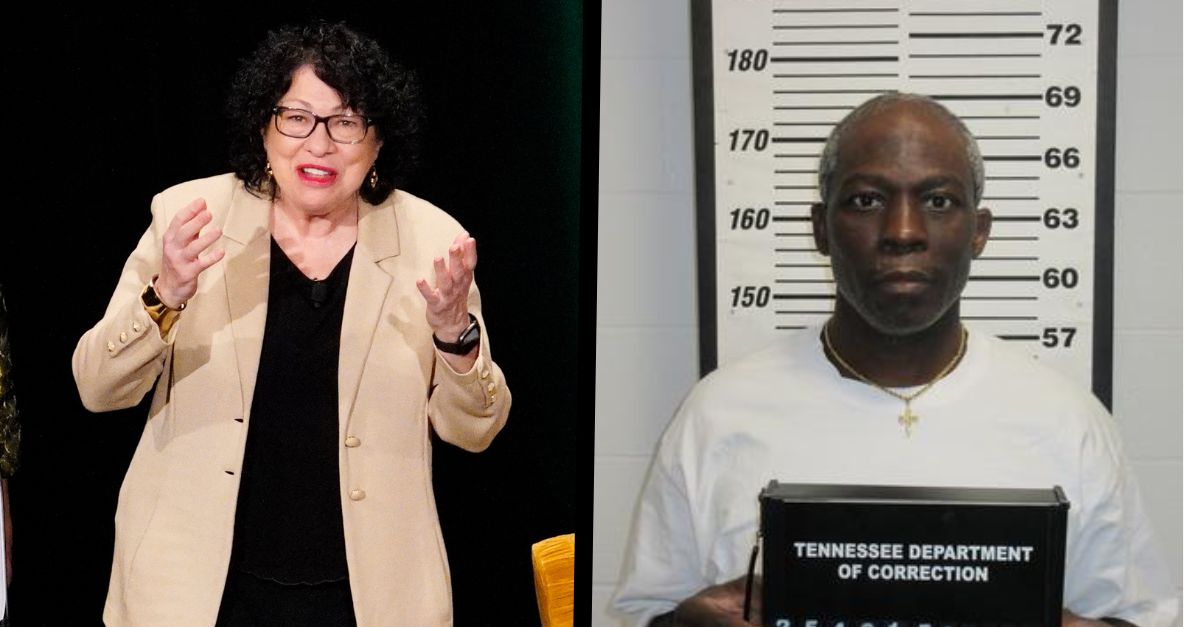SCOTUS denies Kevin Burns execution case, Sotomayor dissents’ Justice Sonia Sotomayor lamented the U.S. Supreme Court majority’s refusal to correct an “egregious error” that now means a murder defendant will be executed “despite a very robust possibility” that he did not actually shoot the victims as the jury believed he had.
SCOTUS denies Kevin Burns execution case, Sotomayor dissents
Sotomayor penned a lengthy dissent, joined by Justices Elena Kagan and Kentanji Brown Jackson, to the Court’s denial of certiorari in the appeal of Kevin Burns, a man who was sentenced to death after being convicted of murder in the 1992 shooting deaths of Damon Dawson and Tracy Johnson.
The victims had been sitting in a car drinking gin and smoking marijuana when six men came upon them and robbed them. Three of the six assailants opened fire with handguns, killing Dawson and Johnson and injuring two others — but which of the three men was responsible for the gunshots remained an issue in the case. As Sotomayor put it in her dissent: “No definitive narrative emerged regarding who had shot the victims.”
READ ALSO: Child molestation suspect Jason Valentine Esparza Arrested
Ultimately, Burns and two others were prosecuted for the murders in separate trials. The two others were tried first, convicted, and sentenced to life in prison. Burns was acquitted of premeditated murder, convicted of felony murder, and sentenced to death.
Burns’s murder conviction was based on the felony murder rule, which allows prosecutors to charge defendants with murder even when a defendant did not directly cause a victim’s death. In this case, because Burns was found to have participated in the robbery, the jury never had to decide who actually killed the victims. The felony murder rule has come under increasing fire in progressive criminal justice reform circles in recent years, particularly in the context of capital convictions.
During the penalty phase of Burns’s trial, his lawyer could have presented mitigating evidence that to show that Burns was not responsible for shooting the two victims, but failed to do so. Although Burns would still have been guilty of the underlying felony murder, the fact that he did not personally pull the trigger “was plainly relevant to the jury’s determination whether to sentence him to death,” according to the dissenting justices.
Burns appealed his death sentence, claiming ineffective assistance of counsel and arguing that his lawyer only minimally prepared for the sentencing proceeding and completely failed to raise evidence that Burns’s co-defendant had been the real shooter. A split panel of the U.S. Court of Appeals for the Sixth Circuit ruled against Burns. Senior U.S. Circuit Judges Alice Batchelder, a George H.W. Bush appointee, and Deborah Cook, a George W. Bush appointee, found that Burns’s defense lawyer performed adequately. Barack Obama appointee U.S. Circuit Judge Jane Branstetter Stanch, however, disagreed and found that the lawyer’s failure to introduce mitigating evidence had not been a tactical decision, but rather, an unreasonable error.
In his petition to the Supreme Court, Burns’s lawyers argued that their client was so clearly entitled to a favorable ruling that the justices should issue a “summary reversal” and vacate Burns’ death sentence. The Court’s 6-3 majority not only refused to reverse, but it refused to even hear the case, thus leaving the Sixth Circuit’s ruling — and Burns’s death sentence — in place.
The result not only upholds Burns’s fate, but also leaves the Sixth Circuit’s standards for defense counsel in place for future capital cases.


